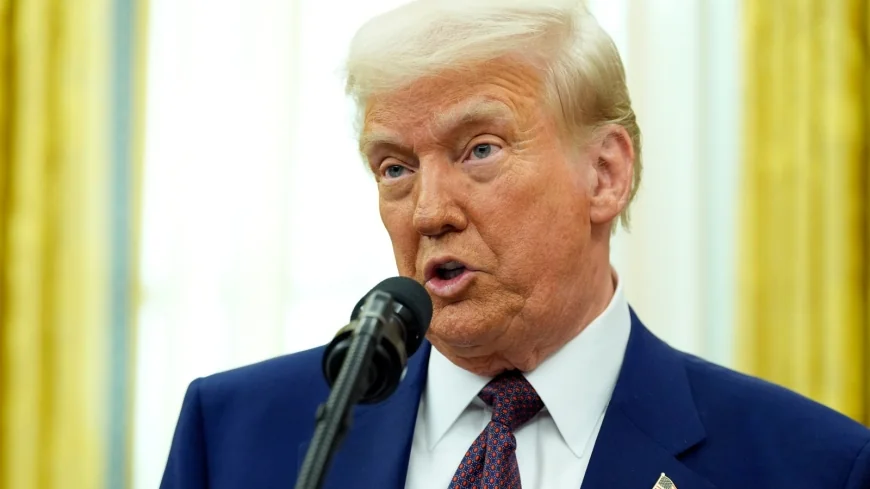‘Unconstitutional’: Political experts analyze Trump’s recent Truth Social post on college protests

RICHMOND, Va. (WRIC) -- President Donald Trump's recent Truth Social post on college protests, which was published the morning before his joint congressional address on Tuesday, has drawn attention from both legal experts and students.
The post suggested cutting federal funding to colleges that allow what he described as "illegal protests".
Trump's post, made at 7:30 a.m. on Tuesday, March 4, reads:
"All Federal Funding will STOP for any College, School, or University that allows illegal protests. Agitators will be imprisoned/or permanently sent back to the country from which they came. American students will be permanently expelled or, depending on on the crime, arrested. NO MASKS! Thank you for your attention to this matter."
Then, at the joint congressional address later that same day, Trump said: "I have stopped all government censorship and brought back free speech in America. It's back."
After his Truth Social post, Virginia Commonwealth University (VCU) students said they have a hard time believing that statement.
"He's trying to wield his power as the executive in ways that are so unconstitutional," said VCU freshman Tadek Wieczorek.
His statement was echoed by sophomores Abigail Taylor and Celina Harris, who added: "He's taking away free speech. That's like the founding principle of America.”
VCU political science professor John Aughenbaugh said students came to class Wednesday morning after the post and the speech, asking if they should be worried.
"I had to explain that, 'You shouldn't worry about engaging in speech as a college student, simply because I am unconvinced that the Department of Education has that kind of authority to force somebody either to be expelled from a college or university,'" he said.
Aughenbaugh pointed out that politics have changed drastically in the age of social media.
"If you assume that social media platforms are the modern version of public spaces, like courthouses of the past, there's a downside," he said. "The downside is that there is no meaningful debate or deliberation on what should be important in our government or in the body politic."
He said that politicians posting to social media creates more of a public reaction than a dialogue, because they can simply turn their devices off afterwards or log out of social media -- all without providing a logical explanation for political plans they post about.
"It's blatantly unconstitutional," Aughenbaugh said.
He isn't the only person to say this, with legal professor Marissa Jackson also calling the posts' statements a 'constitutional violation'.
"He's directly attacking the First Amendment," Jackson, who teaches law at the University of Richmond, said. "The First Amendment is very clearly written and it protects the right to peaceful assembly."
Jackson said Trump's post also violates due process. She also said no protest can be "illegal" unless the act, in itself, breaks the law -- like trespassing on a private property, for example.
Additionally, Aughenbaugh said the federal government has little to no power here, as many universities have their own administrative process in place to handle protests.

 VENN
VENN 





